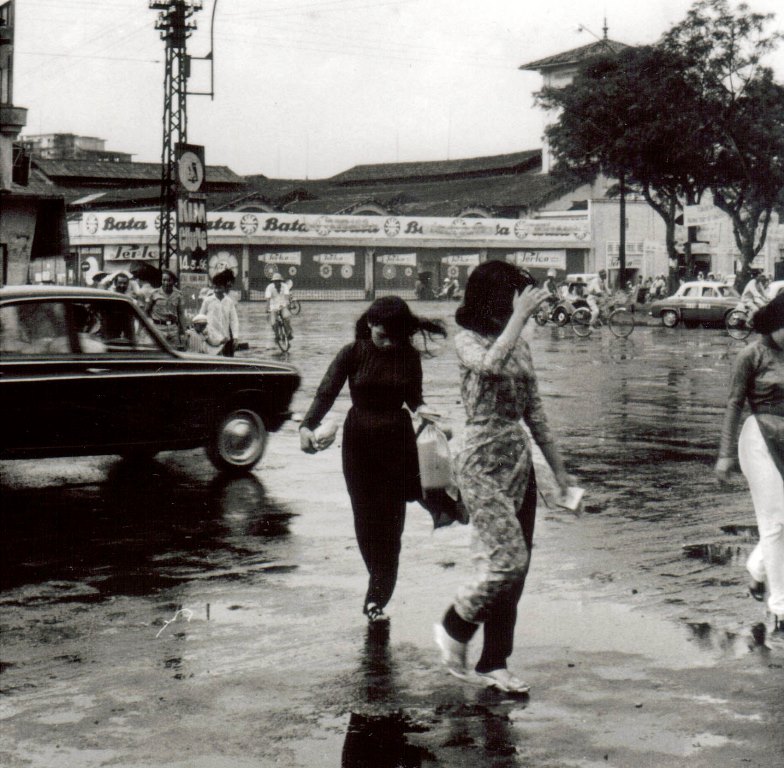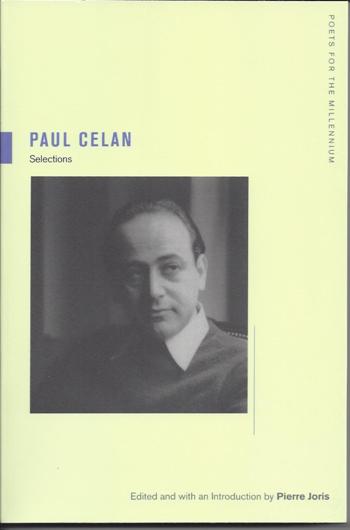
I Why The Classics
Bei Dao Zbigniew Herbert Zagajewski R. Carver Milosz Bolano Poems Charles Simic Brodsky Borges Cavafy_Ithaca Octavio Paz Thu 2013 NXH's Poems of the Night Lửa & Khoa Hữu & Celan TNH Poems Haiku_Buson Xmas 26 Dec 1999 Mark Strand Mahmoud Darwish W.S. Merwin TTT_9_Years Trang thơ Dã Viên The Lunatic by Simic Map by Szymborska Serbian Poetry ed by Simic Baczinski by AZ A Defense of Ardor by AZ Thơ Joseph Huỳnh Văn Emily Dickinson 1 Wallace Stevens Tomas Transtromer Paul Celan Cầu Mirabeau |
Album | Thơ | Tưởng Niệm | Nội cỏ của thiên đường | Passage Eden | Sáng tác | Sách mới xuất bản | Chuyện văn
Dịch thuật | Dịch ngắn | Đọc sách | Độc giả sáng tác | Giới thiệu | Góc Sài gòn | Góc Hà nội | Góc Thảo Trường Lý thuyết phê bình | Tác giả Việt | Tác giả ngoại | Tác giả & Tác phẩm | Text Scan | Tin văn vắn | Thời sự | Thư tín | Phỏng vấn | Phỏng vấn dởm | Phỏng vấn ngắn Giai thoại | Potin | Linh tinh | Thống kê | Viết ngắn | Tiểu thuyết | Lướt Tin Văn Cũ | Kỷ niệm | Thời Sự Hình | Gọi Người Đã Chết Ghi chú trong ngày | Thơ Mỗi Ngày | Chân Dung | Jennifer Video Nhật Ký Tin Văn/ Viết
Thơ Mỗi Ngày
Faithful mother tongue, I have been serving you. Every night, I used to sit before you little bowls of colors so you could have your birch, your cricket, your finch as preserved in my memory. This lasted many years. You were my native land; I lacked any other. I believed that you would also be a messenger between me and some good people even if they were few, twenty, ten or not born, as yet. Now, I confess my doubt. There are moments when it seems to me I have squandered my life. For you are a tongue of the debased, of the unreasonable, hating themselves even more than they hate other nations, a tongue of informers, a tongue of the confused, ill with their own innocence. But without you, who am I? Only a scholar in a distant country, a success, without fears and humiliations. Yes, who am I without you? Just a philosopher, like everyone else. I understand, this is meant as my education: the glory of individuality is taken away, Fortune spreads a red carpet before the sinner in a morality play while on the linen backdrop a magic lantern throw images of human and divine torture. Faithful mother tongue, perhaps after all it's I who must try to save you. So I will continue to set before you little bowls of colors bright and pure if possible, for what is needed in misfortune is a little order and beauty Berkeley, 1968 Czeslaw Milosz: Selected Poems 1931-2004 Tiếng mẹ đẻ của tôi mà tôi một lòng
một dạ
Tiếng mẹ đẻ của tôi mà tôi một lòng một dạ Tôi đã phục vụ tiếng mẹ đẻ của tôi Đêm nào cũng vậy, tôi để trước bà những cái chén màu sắc, và như vậy bà có thể có cây roi, con dế, con chim sẻ của bà (1) Như tôi còn gìn giữ được, trong trí nhớ của mình Điều này kéo dài trong nhiều năm Bà là quê mẹ của tôi; tôi đâu có quê nào khác. Tôi tin tưởng bà còn là vì thiên sứ Giữa tôi và số thiện nhân Ngay cả khi đám này đếm trên đầu ngón tay Hoặc chưa có mống nào ra đời Và bây giờ, tôi thú thực Hình như là tôi có tí nghi ngờ Có những lúc tôi cảm thấy mình hoang phí đời mình. Bởi vì tiếng mẹ tôi là thứ tiếng của một đám người tệ hại Của những kẻ không hề biết lẽ phải là gì Của những kẻ thù hận lẫn nhau Chúng thù chúng còn hơn cả thù những quốc gia khác Thứ tiếng nói của bọn cớm, những tên chỉ điểm Của bọn chuyên lầm lẫn Một lũ bịnh vì sự ngây thơ của chính chúng Nhưng không có bà, thì tôi là ai? Chỉ là 1 tên học giả ở một xứ sở xa xôi một sự thành công, không sợ hãi mà cũng không tủi nhục Đúng rồi, tôi là ai nếu không có tiếng mẹ đẻ? Chỉ là 1 triết gia Như mọi người khác Tôi biết, điều này có nghĩa như là học vấn của tôi: Sự vinh quang cá nhân được lấy đi Của cải trải ra tấm thảm đỏ trước kẻ tội lỗi trong 1 vở kịch đạo đức, trong khi trên tấm màn phông, cây đèn thần ném ra những hình ảnh của sự tra tấn, con người và thần linh. Tiếng mẹ đẻ mà tôi một lòng một dạ Có lẽ, sau chót, chính tôi là người phải cố gắng cứu tiếng mẹ đẻ của mình Và tôi sẽ tiếp tục bày ra trước tiếng mẹ đẻ những cái chén mầu sắc, sáng ngời, và trong sạch, nếu có thể Bởi vì điều cần trong bất hạnh, là, một trật tự nho nhỏ và cái đẹp Czeslaw Milosz Berkeley, 1968 (1) Câu này, thú thực Gấu không hiểu tác giả muốn nói gì. Trên net, có bài này, có cả nguyên văn tiếng Ba Lan, bạn nào rành, chỉ giùm. Cái đoạn Milosz phạng tiếng mẹ đẻ của ông, sao nghe thấm quá, đã quá! NQT Birch là một loại cây giống cây lao của VN (từ điển Việt nam gọi là cây bu-lô) , hoặc cây aspen của Mỹ, có thân màu trắng, đặc biệt vỏ thân thường bị bóc ra . Lá trở vàng vào mùa thu, rất xinh đẹp . Tiếng mẹ thủy chung Tôi đã phục vụ bà Hằng đêm tôi thường đặt trước mặt bà những chén sắc màu nho nhỏ để bà có thể có những cây birch, những chú dế, và những con chim sẻ như chúng đã được gìn giữ (bảo tồn) trong trí nhớ của tôi ps. Vì anh nghĩ birch là cái roi cho nên mới khó hiểu . Chứ khi biết đó là một loại cây mọc rất nhiều ở âu mỹ (cũng như tre trúc ở VN ), thì những thứ thân quen từng nhìn thấy hàng ngày như cây tre, như dế, như chim sẻ bỗng trở nên thân thiết ăn sâu trong trí nhớ của những kẻ xa quê . K. Tks. NQT Rain hisses onto stones as old men and women drive donkeys to cover. We stand in rain, more foolish than donkeys, and shout, walk up and down in rain and accuse. • When rain stops the old men and women who have waited quietly in doorways, smoking, lead their donkeys out once more and up the hill. • Behind, always behind, I climb through the narrow streets. I roll my eyes. I clatter against stones. PLUIE SOUDAINE [vieux et vieilles mènent des ânes a l'abri. Debout sous la pluie, plus ânes que les ânes, nous hurlons, marchons de long en large sous la [pluie et accusons. * Quand la pluie cesse les vieux et les vieilles qui attendaient tranquillement sous des porches en [fumant, repartent avec leurs ânes à l'assaut de la côte. * Derrière, toujours derrière, j'escalade les rues étroites. Je roule des yeux. Je claque sur les pavés. Mưa bất thần
Quất lên hè đá, Ông bà bà già bèn dắt lừa vào mái hiên trú mưa Chúng tôi, Đứng dưới mưa, khùng hơn cả lừa khùng Sủa như giặc, hầm hà hầm hừ đi đi lại lại Buộc tội nhau Mưa tạnh, Ông già bà già Lặng thinh chờ, hút thuốc Bèn dắt lừa lên đồi Sau chót, thi luôn luôn là sau chót Tôi leo con phố hẹp Đảo con mắt lé liên miên Lách cách, lách cách Nện giầy lên hè đá. WINTER INSOMNIA
The mind can't sleep, can only lie awake and gorge, listening to the snow gather as for some final assault. It wishes Chekov were here to minister something-three drops of valerian, a glass of rose water-anything, it wouldn't matter. The mind would like to get out of here onto the snow. It would like to run with a pack of shaggy animals, all teeth, under the moon, across the snow, leaving no prints or spoor, nothing behind. The mind is sick tonight. INSOMNIE D'HIVER
L'esprit ne peut pas dormir, ne peut que rester éveillé à se goinfrer, écoutant la neige se rassembler comme pour un ultime assaut. Il voudrait que Tchekhov soit là pour lui administrer quelque chose - trois gouttes de valériane, un verre d'eau de rose - n'irnporte quoi, ca lui serait égal. L'esprit voudrait sortir d'ici, s'en aller dans la neige. Il voudrait galoper avec une meute de betes hirsutes, tous crocs dehors, sous la lune, à travers la neige, ne laissant ni traces ni fumées, ne laissant rien. Il est malade cette nuit, l'esprit. Đông Mất Ngủ
Cái đầu không thể ngủ, cứ trong mắt lên thứcTọng đầy họng, lắng nghe tuyết quần tụ Cho cú đánh chót Giá mà có Chekhov ở đây, nhỉ Làm 1 cái gì đó – ba giọt valerian, một ly nước hồng- Bất cứ cái gì – ông ta vốn dễ tính, cái gì mà chẳng được Cái đầu muốn ra bên ngoài Đi trong tuyết [Nè, không có cái vụ, nỗi nhớ Sài Gòn buốt trên đầu ngón tay] Nó muốn phóng, cùng một lũ thú, Lông bờm xờm, răng nhe hết cả ra Dưới trăng, băng trên tuyết Không để lại dấu, khói, Chẳng để lại cái đéo gì hết Cái đầu bịnh Đêm nay. 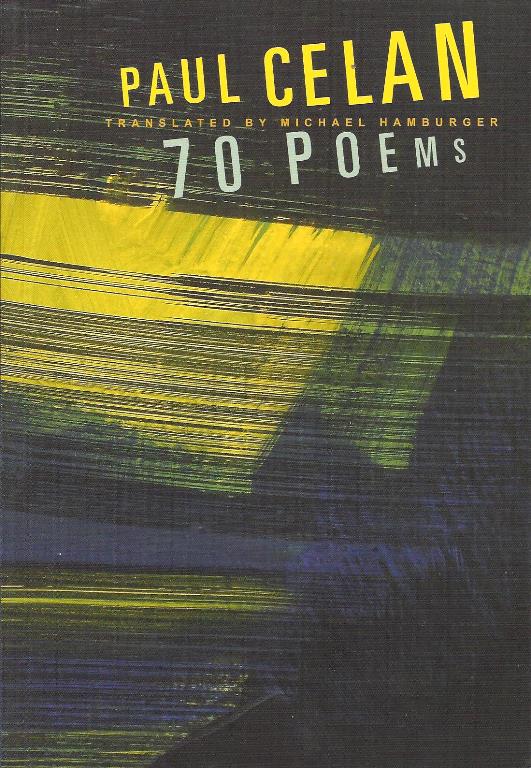
unfinished poem] The grass of your eyes, bitter grass.
Wind, billow above it, eyelid of tallow. The water of your eyes, forgiven water. [Vô đề. Mẩu bài thơ chưa hoàn tất]
Cỏ trong mắt em, cỏ cay đắngGió, biển ở trên, mí mỡ Nước trong mắt em, nước tha thứ. Night of the New Year During the night of the New Year, season without
hours,
To confront his executioners in the name of
the language they share with him, and to force them to their knees.
you dispatched the young catafalque to petition your lover; towards her the incendiary tears marched out of the mirrors in the torch snowed over with sorrow, sprouting out of her head. The ring extinguished in a cup perched up on the window to spy her traipsing through snow with slumbering tresses; the unbraided hands rushed to the gate to await her, while above in the chambers the poets stepped to the waltz. But she strolled through the threshold to fight back an eyelid, to witness the quick of her wakening breast drift off to sleep. A die tumbled between the slabs, with eyes of a nectarine hue, and the wooden citadel's steeple left with a shadow. Encounter
Tonight it'll rain on the green
dunes of limestone, The wine preserved til today in the mouth of a dead man will awaken the land of foot-bridges, displaced in a bell. A human tongue will trumpet audacity in a helmet. And thus the trees will arrive in a fury to wait for the leaf that speaks, delivered in an urn, the heralds of the coast of sleep sent off to the tide of banners. Let it douse in your eyes, so I'll think that we'll die together. Your hair dripping out of the mirrors will blanket the regions of air, where, with a hand of frost, I'll set an autumn on fire. From the waters imbibed by the blind my short laurel will scurry up on a belated ladder, to take a bite from your forehead. Gặp Gỡ
Đêm nay mưa sẽ rơi trên những đụn đá vôi xanhRượu được gìn giữ cho đến bữa nay, trong miệng người chết Sẽ đánh thức miền đất của những chiếc cầu chân đất, lạc lõng trong tiếng chuông Một giọng người sẽ thổi sự hung hãn trong cái nón sắt Và như thế đó, cây sẽ tới trong vội vã Đợi lá, được giải thoát khỏi cái bình, cất tiếng Những viên sứ truyền lệnh của bờ biển của giấc ngủ Sẽ được phái đi tới ngọn triều của những biểu ngữ Hãy để nó tắt ngấm trong mắt em, như thế, anh sẽ nghĩ, chúng mình sẽ cùng chết bên nhau Tóc em trườn ra khỏi những chiếc gương sẽ phủ bầu trời Ở đó, bằng bàn tay của sương giá, anh sẽ để mùa thu lên giàn lửa Từ nước hút bởi 1 người mù, vòng nguyệt quế ngắn ngủi của anh sẽ leo Cái thang muộn, để cắn vào trán em
That was the major bet, held. Have I ever read Paul Celan? I have listened to him for a long time. I listen to him. Each time his books renew a dialogue the beginning of which I can't remember, though nothing has come to interrupt it since then. Silent dialogue through words as light as free and adventurous birds; all the world's gravity being in the sky; like stones laid by nostalgic ghosts on the marble of nonexistent tombs; all the world's pain being in the earth; and like ashes of an interminable day of horror of which there remains but the unbearable image of pink smoke above millions of burned bodies. A nothing rose a Noone's Rose A nothing were we, are we, will we remain, blossoming: the nothing - , the noonesrose. Edmond Jabès: The Memory of Words Để đối chất với lũ đao phủ Bắc Kít, những kẻ cùng chia sẻ tiếng nói với mi Để bắt chúng quỳ gối Quả đúng 1à 1 cú đánh quả lớn. Tôi đã từng đọc Paul Celan? Tôi đã nghe ông nói một thời gian dài. Tôi lắng nghe ông. Mỗi lần sách của ông làm mới lại 1 cuộc thoại, bắt đầu ra sao, tôi chẳng thể nhớ, nhưng kể đó, chưa lần đứt đoạn bởi bất sự điều gì. Thoại lặng câm qua những con chữ, thì nhẹ như chim trời tự do rong ruổi trong những chuyến ngao du; cái trọng lực của thế giới thì ở trên trời, trong không khí; như những hòn đá được bầy ra bởi những hồn ma của hoài nhớ trên những phiến cẩm thạch của những nấm mồ không hiện hữu, tất cả nỗi đau của kiếp người thì ở trong đất; và như tro than của một ngày triền miên của nỗi ghê rợn mà với nó, chẳng có gì còn lại, ngoại trừ một hình ảnh không làm sao chịu đựng nổi của một BHD, giống như sương khói mầu hồng ở bên trên hàng triệu triệu những thân xác bị thiêu đốt Một bông hồng hư vô Một BHD của Không Ai All poets are Jews Marina Tsvetayeva [Paul Celan trích dẫn làm tiêu đề cho 1 bài thơ của ông] Mọi thi sĩ là... Ngụy! Đúng ý Vương Đại Gia, Vương Trí Nhàn, "May mà có Ngụy"! Note: Đây là hình ảnh những nấm mồ ở trên không, cực kỳ thần sầu, do quá thê luơng, trong Tẩu Khúc Của Thần Chết. Kertesz, Nobel văn chương, chôm, mà không biết (1) 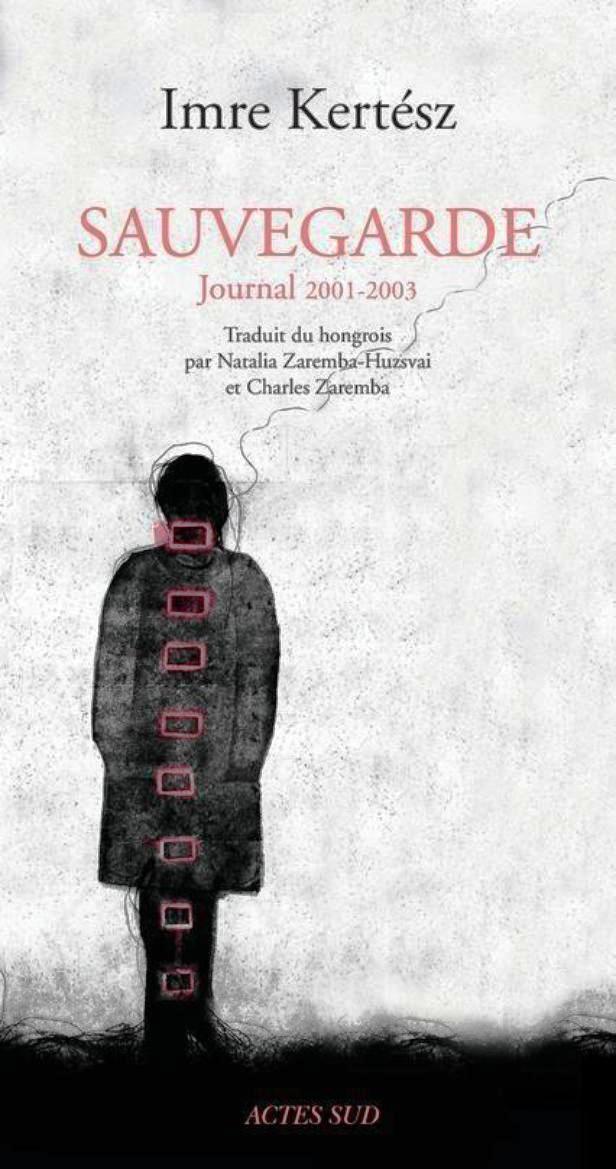
Alexandre Gefen: Kertesz: Khi tôi bắt đầu viết Kaddish, tôi bị ám ảnh bởi ẩn dụ “mồ
đi trên mây” [“la tombe au-dessus des nuages”], chẳng hề biết là tôi trích
dẫn thơ Celan. Ông cảm thấy ra sao, lần đầu đọc bài thơ? Ghi âm bài thơ của Celan? WISLAWA SZYMBORSKA 1923- We were taught that only man has an immortal soul. If today we speak differently of a line separating us from the rest of living beings, does it mean that this line, for us, doesn't exist? We feel it exists, and, using an old-fashioned expression, it is due to the consciousness and free will of man. In other words, only we know guilt, amidst the universal innocence of nature. And this is the subject of Wislawa Szymborska's poem. Chúng ta được dạy cho biết, rằng thì là, con người là 1 thứ thú vật có linh hồn bất tử. Nếu bây giờ, chúng ta nói khác đi, về 1 dòng, phân biệt chúng ta với tất cả những sinh vật còn lại, liệu dòng đó, đối với chúng ta, không hiện hữu? Chúng ta cảm thấy nó hiện hữu, và, sử dụng 1 cách diễn tả cổ hủ, điều này là do ý thức, và ước muốn tự do của con người. Nói 1 cách khác, chỉ chúng ta biết tội lỗi, giữa cái ngây thơ vô tội phổ cập của thiên nhiên. Và đây là đề tài của bài thơ của Szymborska: IN PRAISE OF SELF-DEPRECATION
The buzzard has nothing
to fault himself with. Scruples are alien to the black panther. Piranhas do not doubt the rightness of their actions. The rattlesnake approves of himself without reservations. The self-critical jackal does not exist. The locust, alligator, trichina, horsefly live as they live and are glad of it. The killer-whale's heart weighs one hundred kilos but in other respects it is light. There is nothing more animal-like than a clear conscience on the third planet of the Sun. Translated from the Polish by Magnus J. Krynski and Robert A. Maguire Ngợi Ca Cái Chuyện
Coi Thường Chính Mình
Con ó chẳng có điều gì để mà tự trách
Báo đen xa lạ với cái gọi là đắn đo, ngại ngùng Cá pranhas chẳng bao giờ hồ nghi về chuyện, lẽ phải thuộc về chúng ta, khi rỉa thịt con mồi Rắn rattlesnake xoa đầu mình một cách hết mình Làm đếch gì có thứ chó rừng tự phê, tự kiểm Châu chấu, cá sấu, giun xoắn, mòng Sống như là chúng sống và rất ư hài lòng về chuyện này Trái tim của con cá voi ăn thịt người nặng một trăm ký Nhưng trong những trường hợp khác, nhẹ hều Không có gì tuyệt vời hơn, có lương tâm trong sáng, như của con thú Trên hành tinh thứ ba của Mặt Trời. A similar theme is treated in this poem: the self-torment afflicting us in the early morning. Bài này cũng cùng đề tài, một mình thì lại chán mình làm sao, vào cái giờ sớm sủa bốn giờ sáng! FOUR IN THE MORNING
The hour from night to day. The hour from side to side. The hour for those past thirty. The hour swept clean to the crowing of cocks. The hour when earth betrays us. The hour when wind blows from extinguished stars. The hour of and-what-if-nothing-remains-after-us. The hollow hour. Blank, empty. The very pit of all other hours. No one feels good at four in the morning. If ants feel good at four in the morning -three cheers for the ants. And let five o'clock come if we're to go on living. Translated from the Polish by Magnus J. Krynski and Robert A. Maguire Czeslaw Milosz: A Book of Luminous Things Bốn giờ sáng
Giờ, đêm qua ngàyBên này qua bên kia. Giờ, cho những kẻ quá bốn bó Giờ lên ngôi của tiếng gáy của những con gà trống Giờ trái đất phản bội chúng ta Giờ “đồn xa quằn quại bóng cờ Phất phơ nghe từ ngàn thu “vọng” về”! Giờ của “thiên thu liệu còn chi sau khi ta ngỏm”? Giờ hổng Bạch bản! Rỗng tuếch! Lỗ đen, đích thị nó, của tất cả những giờ khác! Chẳng ai cảm thấy thú vị: Bốn giờ sáng! Nếu lũ kiến cảm thấy thú, bốn giờ sáng Mừng cho chúng! Năm giờ sáng, hãy tới! Thì cũng đành tiếp tục sống Chứ biết làm sao bây giờ! Wislawa Szymborska (2 July 1923 – 1 February 2012) -Anh coi thường em quá. Oanh ngăn xúc động, dịu dàng nói. -Rồi em sẽ hiểu, nên để người ta coi thường mình. TTT: MCNK 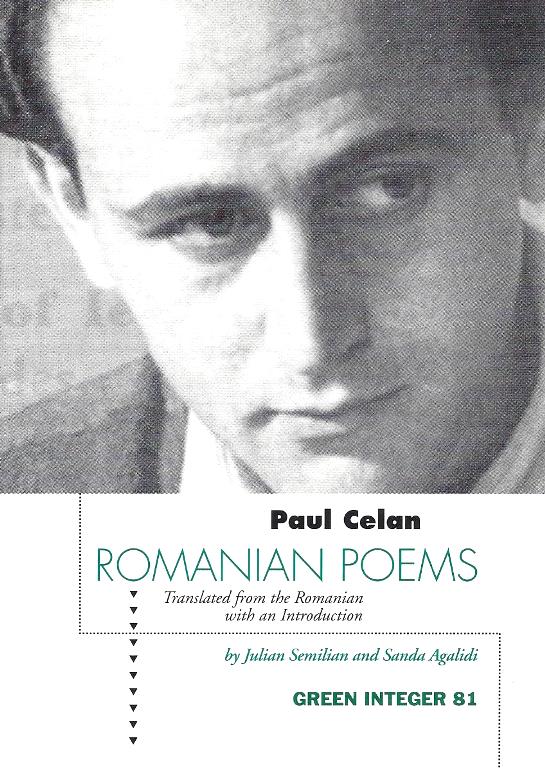
[Without title. Fragment of an
unfinished poem]
The grass of your eyes, bitter grass.
Wind, billow above it, eyelid of tallow. The water of your eyes, forgiven water. Night of the New Year
During the night of the New Year, season without
hours,
you dispatched the young catafalque to petition your lover; towards her the incendiary tears marched out of the mirrors in the torch snowed over with sorrow, sprouting out of her head. The ring extinguished in a cup perched up on the window to spy her traipsing through snow with slumbering tresses; the unbraided hands rushed to the gate to await her, while above in the chambers the poets stepped to the waltz. But she strolled through the threshold to fight back an eyelid, to witness the quick of her wakening breast drift off to sleep. A die tumbled between the slabs, with eyes of a nectarine hue, and the wooden citadel's steeple left with a shadow. Encounter
Tonight it'll rain on the green dunes of limestone, The wine preserved til today in the mouth of a dead man will awaken the land of foot-bridges, displaced in a bell. A human tongue will trumpet audacity in a helmet. And thus the trees will arrive in a fury to wait for the leaf that speaks, delivered in an urn, the heralds of the coast of sleep sent off to the tide of banners. Let it douse in your eyes, so I'll think that we'll die together. Your hair dripping out of the mirrors will blanket the regions of air, where, with a hand of frost, I'll set an autumn on fire. From the waters imbibed by the blind my short laurel will scurry up on a belated ladder, to take a bite from your forehead. Paul Celan Thơ Celan không dễ đọc.
Gấu mua cuốn thơ vì mấy bài viết về ông, bài nào cũng thần sầu.
Không thể bỏ bài nào. Nhưng nhận xét sau đây,
của Jabès, mới thần sầu: Cái sự thách đố lũ VC
Đức Nazi này, thì nằm ở chỗ khác. Nó nằm ngay trong chính cái gọi
là thơ, chính thơ. Bởi là vì có thể, đây cũng chính là vấn nạn của thơ Mit, ngôn ngữ Mít. Cũng chính là vết thương hình chữ S. 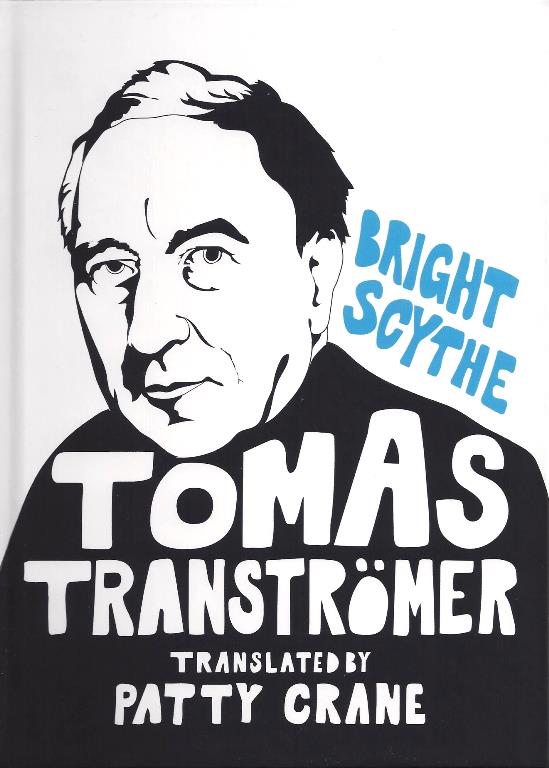
Tomas Transtromer NIGHTBOOK PAGE
I stepped ashore one May night into a chilly moonlight where grass and flowers were gray but their scent green. I drifted up a slope in the colorblind dark while white stones signaled back to the moon. A time span several minutes long fifty-eight years wide. And behind me beyond the lead-shimmering waters was the other coast and those in command. People with a future instead of faces. Trang sách đêm
Tôi bước lên bờ, một đêm tháng Năm, Vào một đêm trăng lạnh Nơi cỏ và hoa thì màu xám Nhưng mùi của chúng, xanh Tôi giạt lên một triền dốc Vào một màu tối mù lòa Trong khi những khối đá, trắng Dội ngược về con trăng Một mẩu thời gian Mươi phút trải, dài Tám mươi tám năm, rộng Và đằng sau tôi Quá những vùng nước trộn trạo màu chì Là một bờ biển khác Và những gì mà nó chủ trì, điều khiển Những con người với tương lai Thay vì những bộ mặt. KYRIE
Sometimes my life opened its eyes in the dark. A feeling as if crowds moved through the streets in blindness and angst on the way to a miracle, while I, invisible, remain standing still. Like the child who falls asleep afraid listening to his heart's heavy steps. Long, long, until morning slips its rays in the locks and the doors of darkness open. Kyrie
Đôi khi đời tôi mở những con mắt của nó, vào bóng tối Một cảm nghĩ, như thể những đám đông di chuyển trên đường phố Trong mù lòa, và sợ hãi, trên đường tới phép lạ Trong khi tôi, vô hình, đứng một cục, mình ên Như đứa trẻ thiu thiu ngủ sợ Nghe những bước chân nặng nề của trái tim của nó Dài, dài, cho tới khi buổi sáng chiếu những tia qua lỗ khóa Và những cánh cửa của bóng tối mở ra Madrigal
I inherited a dark forest where I seldom walk. But there will come a day when the dead and the living change places. Then the forest will be set into motion. We aren't without hope. The most difficult crimes remain unsolved despite the efforts of many police. In the same way that somewhere in our lives there's a great unsolved love. I inherited a dark forest but today I walk in another forest, the light one. Every living thing that sings wriggles sways and crawls! It's spring and the air is intense. I have a degree from the university of oblivion and I'm as empty-handed as the shirt on the clothesline. 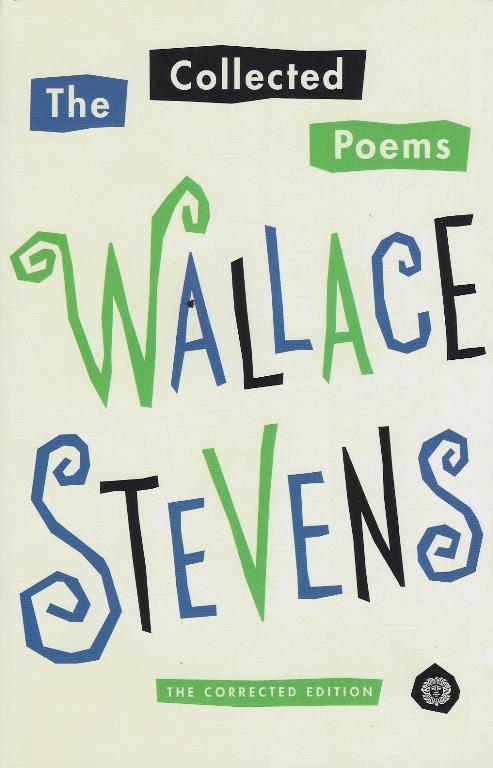
Wallace Stevens FLYER'S FALL
This man escaped the dirty fates, Knowing that he did nobly, as he died. Darkness, nothingness of human after-death, Receive and keep him in the deepnesses of space- Profundum, physical thunder, dimension in which We believe without belief, beyond belief. DEBRIS OF LIFE AND MIND
There is so little that is close and warm. It is as if we were never children. Sit in the room. It is true in the moonlight That it is as if we had never been young. We ought not to be awake. It is from this That a bright red woman will be rising And, standing in violent golds, will brush her hair. She will speak thoughtfully the words of a line. She will think about them not quite able to sing. Besides, when the sky is so blue, things sing themselves. Even for her, already for her. She will listen And feel that her color is a meditation, The most gay and yet not so gay as it was. Stay here. Speak of familiar things a while. Wallace Stevens The Collected Poems 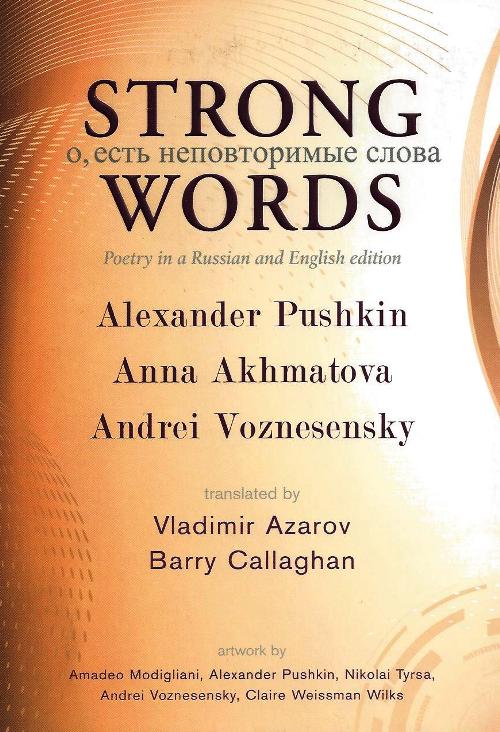
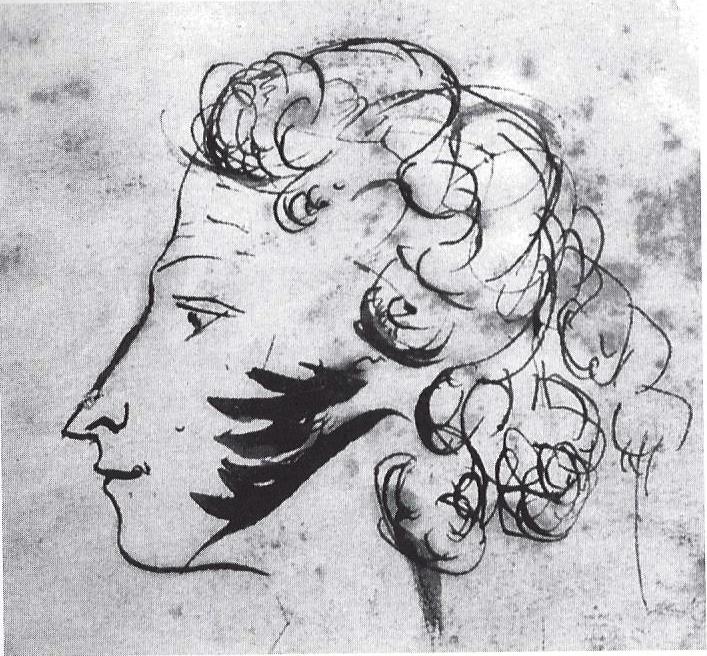
I had forgotten I had forgotten in my heart How to weep, how to suffer pain, How, through poetry, to impart In all its rapture, love, again! But then-in the wine-dark sea Of ecstasy, I revive ... Tormented, tearful, I thrive, Words rhyme, come alive in me. Pushkin WISLAWA SZYMBORSKA 1923- We were taught that only man has an immortal soul. If today we speak differently of a line separating us from the rest of living beings, does it mean that this line, for us, doesn't exist? We feel it exists, and, using an old-fashioned expression, it is due to the consciousness and free will of man. In other words, only we know guilt, amidst the universal innocence of nature. And this is the subject of Wislawa Szymborska's poem. IN PRAISE OF SELF-DEPRECATION
Ngợi Ca Cái Chuyện Coi Thường Chính Mình The buzzard has nothing to fault himself with. Scruples are alien to the black panther. Piranhas do not doubt the rightness of their actions. The rattlesnake approves of himself without reservations. The self-critical jackal does not exist. The locust, alligator, trichina, horsefly live as they live and are glad of it. The killer-whale's heart weighs one hundred kilos but in other respects it is light. There is nothing more animal-like than a clear conscience on the third planet of the Sun: Translated from the Polish by Magnus J. Krynski and Robert A. Maguire A similar theme is treated in this poem: the self-torment afflicting us in the early morning. FOUR IN THE MORNING
The hour from night to day. The hour from side to side. The hour for those past thirty. The hour swept clean to the crowing of cocks. The hour when earth betrays us. The hour when wind blows from extinguished stars. The hour of and-what-if-nothing-remains-after-us. The hollow hour. Blank, empty. The very pit of all other hours. No one feels good at four in the morning. If ants feel good at four in the morning -three cheers for the ants. And let five o'clock come if we're to go on living. Translated from the Polish by Magnus J. Krynski and Robert A. Maguire Czeslaw Milosz: A Book of Luminous Things Wislawa Szymborska (2 July 1923 – 1 February 2012) -Anh coi thường em quá. Oanh ngăn xúc động, dịu dàng nói. -Rồi em sẽ hiểu, nên để người ta coi thường mình. TTT: MCNK 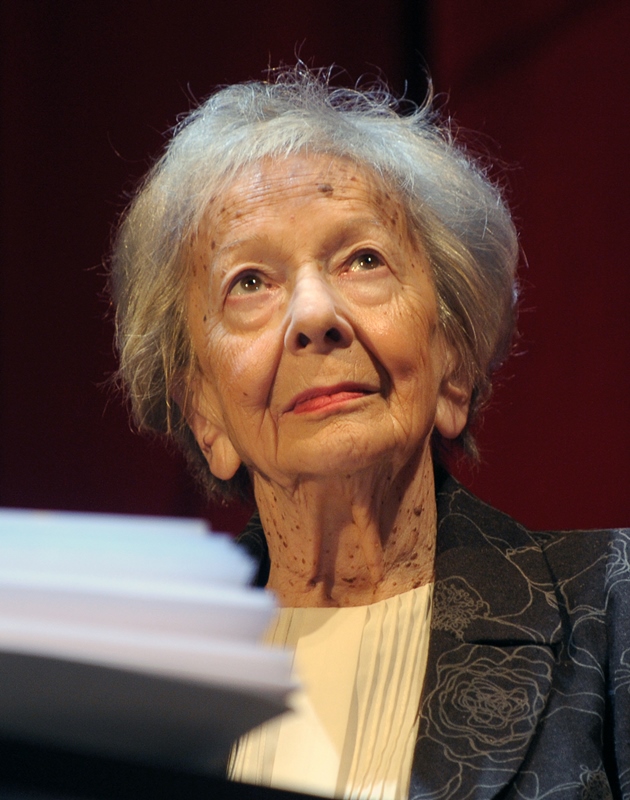
https://www.washingtonpost.com/entertainment/books/wislawa-szymborska-a-nobel-prize-winning-polish-poet-dies-at-88/2012/02/02/gIQAlAfnnQ_story.html Wislawa Szymborska, a Nobel Prize-winning poet who used the imagery of everyday objects and a mordant style to explore dramatic themes of human experience including love, war and death, died Feb. 1 at her home in Krakow, Poland. She was 88. (Janek Skarzynski/AFP/Getty Images) Ms. Szymborska shunned the idea of being a political poet, though she recognized the personal could bleed into the political while living under a communist regime. “When I was young, I had a moment of believing in the communist doctrine,” she told Hirsch in 1996. “I wanted to save the world through communism. Quite soon, I understood that it doesn’t work, but I’ve never pretended it didn’t happen to me. “At the very beginning of my creative life, I loved humanity,” she continued. “I wanted to do something good for mankind. Soon, I understood that it isn’t possible to save mankind. There’s no need to love humanity, but there is a need to like people. Not love, just like. This is the lesson I draw from the difficult experiences of my youth.” 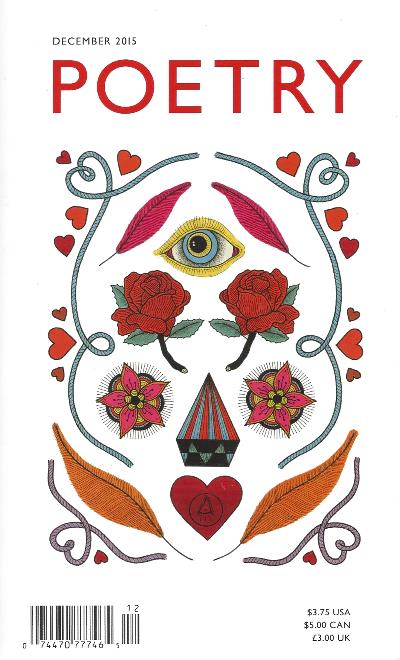
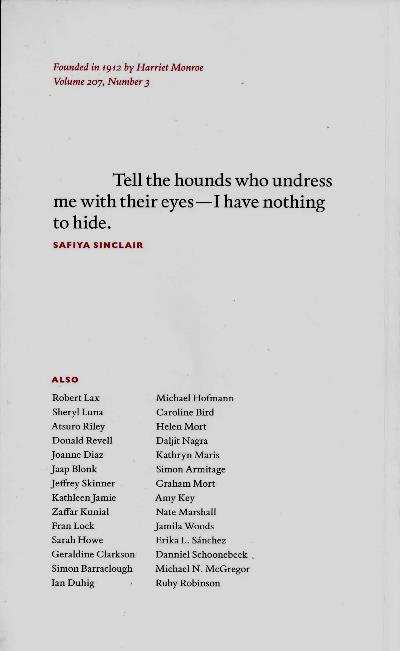
Biểu lũ Gấu Đực đang lột truồng ta ra Bằng những cặp mắt cú vọ của chúng Ta chẳng có gì để mà giấu ZAFFAR KUNIAL
From "Empty Words"
Meaning "homeland" -mulk (in Kashmir) - exactly how my son demands milk. Full-rhyme with Jhelum, the river nearest his home- my father's "realm." You can't put a leaf between written and oral; that first A, or alif. Letters. West to east Mum's hand would write; Dad's script goes east to west. Received. Invader, to some- neither here, nor there, with me- our rhododendron. Where migrating geese pause to sleep - somewhere, halfway is this pillow's crease. Now we separate for the first time, on our walk, at the kissing gate. Old English "Deor"- an exile's lament, the past's dark, half-opened door. Yes, I know. Empty. But there's just something between the p and the t. At home in Grasmere - thin mountain paths have me back, a boy in Kashmir. ZAFFAR KUNIAL was born in Birmingham, England. He spent 2014 in Grasmere as the Wordsworth Trust Poet-in-Residence. His poem in this issue was first published in Faber New Poets 11 by Zaffar Kunial (Faber & Faber, 2014). 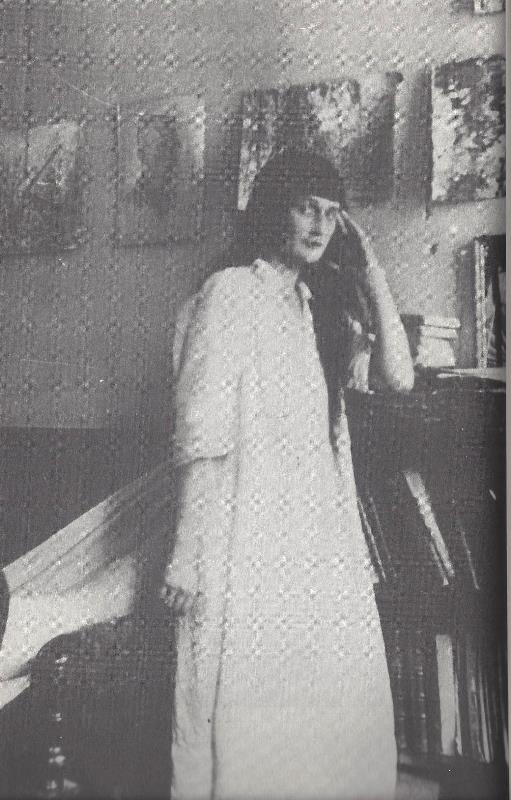
PAGES FROM A DIARY
I WAS BORN IN THE same year as Charlie Chaplin, Tolstoy's Kreutzer
Sonata, the Eiffel Tower, and, it seems, T. S. Eliot.' That summer
Paris celebrated the one-hundredth anniversary of the fall of the Bastille-1889.
The ancient festival of St. John's Eve (Midsummer Night) was-and is
still-celebrated on the night of my birth, June 23rd. I was named Anna
in honor of my grandmother, Anna Yegorovna Motovilova.' Her mother,
a descendant of Genghis Khan, was the Tatar princess Akhmatova, whose
name I took for my literary name, not realizing that I was about to become
a Russian poet. I was born in Sarakina's dacha (Bolshoi Fontan, the
11th railroad stop) near Odessa. This little dacha (more like a hut)
was situated at the bottom of a very narrow and steep tract of land next
to the post office. The seashore there is steep and the railroad tracks
went along the very brink. When I was fifteen years old and we were living
in the dacha at Lustdorf, we were traveling through this area for some reason,
and my mother suggested that we go and see Sarakina's dacha, which I had
never seen. At the hut's entrance I said, "Some day they'll put up a memorial
plaque here." I wasn't being vain. It was just a silly joke. My mother
was distressed. "My God," she said, "how badly I've brought you up."
The Hut 1957 ... I Know How to Love
I know how to love. I know how to be submissive and tender. I know how to gaze into one's eyes with a smile, Beckoning, inviting, vacillating. And my supple figure is so airy and graceful And the fragrance of my curls caresses. 0, he who is with me is uneasy in his soul And embraced by sweet bliss ... I know how to love. I am deceptively shy. I am so timidly tender and always quiet, Only my eyes speak. They are clear and pure, So translucently radiant, They promise happiness. If you believe them, they will deceive you. They will only become bluer, They are both tenderer and brighter Than the pale blue gleam of a fire. And on my lips is scarlet bliss, My breast is whiter than mountain snow, My voice murmurs of azure streams. I know how to love. A kiss awaits you. Yevpatoriya, 1906 [Trong thư gửi Sergei Vladimirovich] Ta biết yêu
Ta biết làm ra vẻ phục tùng, dịu dàngNhư thế nào, khi nhìn vào mắt với nụ cười Gật gật cái đầu, mời mọc, run lẩy bẩy Và khuôn mặt của ta ư, làm ra vẻ chịu đựng, luồn cúi, làm ra vẻ xa vắng, làm ra vẻ khả ái như thế nào Và những nét cong mềm mại vuốt ve Ôi chao, chàng là ai mà vào lúc này hồn dưng không quằn quại Bên… tui Ngọt ngào ân sủng Tôi biết yêu là như thế nào Và tôi mới ngượng ngùng làm sao Cái gì gì, đừng như tôi như thế làm tôi phát ngượng! Ôi, em mới bẽn lẽn rụt rè làm sao, và luôn luôn, đời đời trầm lặng Chỉ đôi mắt em, nói. 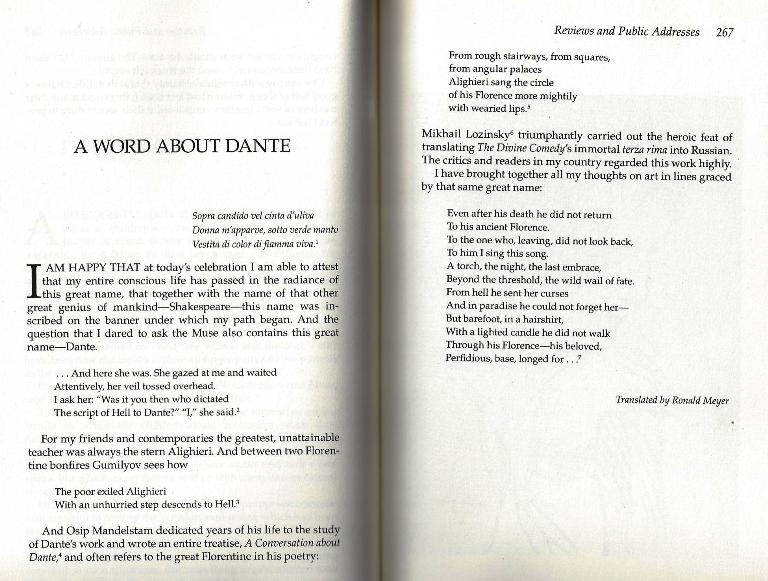
A WORD ABOUT DANTE Sopra candido vel cinta d'uliva
Donna m'apparve, sotto verde manto Vestita di color di fiamma viva I AM HAPPY THAT at today’s celebration
I am able to attest that my entire conscious life has passed in the
radiance of this great name, that together with the name of this great
genius of mankind-Shakespeare-this name was inscribed on the banner under
which my path began. And the question that I dared to ask the Muse also
contains this name-Dante. . . . And here she was. She gazed
at me and waited For my friends and contemporaries
the greatest, unattainable teacher was always the stern Alighieri. And
between two Florentine bonfires Gumilyov sees how The poor exiled Alighieri And Osip Mandelstam dedicated
years of his life to the study of Dante's work and wrote an entire treatise,
A Conversation with Dante, and often refers
to the great Florentine in his poetry: From rough stairways, from squares, Mikhail Lozinsky triumphantly
carried out the heroic feat of translating The Divine Comedy's
immortal terza rima into Russian. Even after his death he did not
return Translated by Ronald Meyer (1) THE MUSE When at night I await the beloved
guest, But now she is here. Tossing aside
her veil, 1924 Ðêm, ta đợi vị khách quí nàng nhìn ta ra ý dò hỏi. “Bà có phải là người đọc từng trang Ðịa Ngục cho Dante chép, phải không?” Ta hỏi nàng. “Không phải ta, thì là ai?” 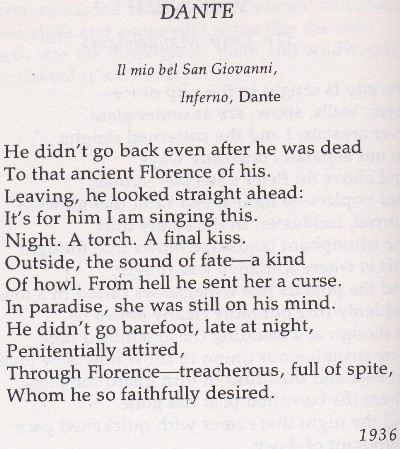
Dante
Chàng đếch thèm trở lại Bài thơ trên, kỳ cục thay -
tuyệt vời thay - làm liên tưởng tới nhà thơ tội đồ gốc Bắc Kít, trong
bài thơ nhớ vợ; cũng cái giọng ngôi thứ nhất, cũng chỉ là riêng tư,
mà trở thành “sử thi” của lũ Ngụy. Bài thơ thần sầu nhất của Thơ Ở Đâu Xa: Bài Nhớ Thi Sĩ Đâu có phải tự nhiên mà đám sĩ quan VNCH lại phổ thơ, và đi đường tụng ca, khi còn ở trong tù VC. Mỗi ông thì đều có 1 bà vợ như vậy. The Keening Muse ["Nữ thần thơ than van", tên
bài viết của Brodsky về Akhmatova] Nhớ Già Ung * Gửi MT Sáng nay thức giấc trong nhà
giam Mưa bụi rì rào Đã qua đã qua chuỗi ngày lạnh
lẽo anh tự nhủ Từ bao giờ anh đứng trân trối
cô đơn (Bình minh bình minh anh kêu
khẽ cảm động muốn khóc Em, em có hay kẻ tội đồ biệt
xứ Em, soi bóng em hồn nhiên
trên lối thời gian Lào Kay 4/78 |
